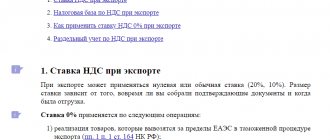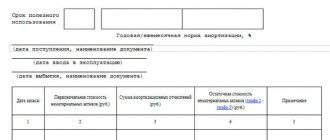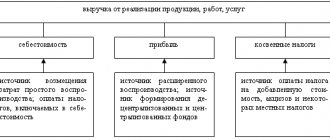You can give something to each other from the bottom of your heart, without expecting anything in return. Or you can try to achieve some financial benefits for yourself in this way, for example, reduce the amount of tax. Individuals can transfer any property to each other without burdening themselves with additional registration if they do not wish to do so. But organizations must adhere to legally regulated procedures.
In what cases can real estate be transferred free of charge into the ownership of another legal entity ?
There are many nuances in the gratuitous transfer of property between legal entities that an entrepreneur must comply with in order to remain within the law. Let's consider which methods of transferring property can be classified as free of charge, how such a transfer is carried out and how to formalize it correctly, and also clarify the tax subtleties relating to this procedure.
Gratuitous transfer or donation
An organization, while carrying out its activities, can accept from other organizations or transfer to them property belonging to the company, without expecting any reciprocal steps in return, that is, free of charge . This is expressly permitted by Art. 572 of the Civil Code of the Russian Federation.
What kind of agreement can be used to formalize the gratuitous transfer of real estate between organizations?
Once the property has been donated, the organization receiving it does not in any way assume the following obligations.
- This or that form of payment for the received property.
- Counter provision of services, performance of work, reciprocal property barter.
A gift , in contrast to a gratuitous transfer, is the provision of property or money in an amount not exceeding 3 thousand rubles. and does not require documentation.
NOTE! From the point of view of the Tax Code, a transfer, even gratuitous, is a transfer of ownership of property from one legal entity to another, that is, the same implementation.
What can be donated?
Objects for gratuitous transfer may be:
- securities;
- intangible assets of the organization;
- goods;
- finished products;
- materials, raw materials;
- equipment, tools;
- real estate objects or the right to use them;
- vehicles;
- money in cash or non-cash form, as well as repayment of the financial obligations of the recipient.
IMPORTANT! If taking possession of the transferred property involves registration, for example, we are talking about a car or real estate, then the recipient party must register this property for themselves, and only then will a change of owner occur.
What property cannot be given as a gift?
IMPORTANT! A sample agreement between legal entities on the transfer of non-residential premises for free use from ConsultantPlus is available at the link
Some categories of property cannot be gifted because they have limited civil circulation or are completely removed from it. Such possessions include:
- some types of weapons;
- military equipment and military equipment;
- toxic substances;
- museum and rare items;
- Natural resources.
***
So, when transferring property free of charge, VAT
is charged when:
- the objects of transfer are accepted by a business entity (organization or individual entrepreneur);
- the object was accepted by a non-profit organization, but the documents for charitable activities were incorrectly completed.
And it is not charged when:
- the object of gratuitous transfer is accepted by a non-profit organization to carry out its statutory activities;
- the object of transfer is money;
- the operation of such a transfer is not an implementation.
Similar articles
- Practical commentary to Art. 146 Tax Code of the Russian Federation
- The organization operates without VAT - features of mutual settlements
- Object of VAT taxation
- What can be classified as an object of VAT taxation?
- 5 percent rule since 2018
Limits on gifts and gratuitous transfers
It is impossible to transfer property for an unlimited amount free of charge, just as expensive gifts between business partners are illegal. The law allows gifts of no more than 3 thousand rubles; everything else donated must be formalized with an appropriate agreement and carried out in accounting.
Limits are lifted in certain situations specified by law:
- the property is transferred to a budgetary or public structure;
- donate to a religious organization;
- assets are received by a non-profit structure, a charitable foundation, etc.
FOR YOUR INFORMATION! The organization also has the right to make a gift to an individual, but only if he does not hold a government position, does not work in a bank or in social structures (medical, educational, etc.).
As for receiving something as a gift, an organization can be gifted, even for a large amount:
- an individual;
- government agency;
- municipal organization.
Accounting for gratuitous transfers
The accounting department of both the giving and receiving parties is obliged to carry out the registration of donated assets prescribed by law.
Postings of the donor company
From an accounting point of view, the company, by donating part of its property, thereby reduced its assets. With the disposal of a certain share of fixed assets, economic efficiency theoretically decreases. Therefore, such an operation is carried out according to expense items (clause 2 of PBU No. 10/99).
IMPORTANT! The cost of a gift and expenses for its gratuitous transfer are not equated to income tax expenses (Article 270 of the Tax Code of the Russian Federation).
Host party accounting
The company that accepted the property as a gift thereby increased its assets. The cost of the income thus obtained should be reflected in the main indicators, taking into account depreciation (clause 47 of the Methodological Recommendations).
To correctly determine the value of donated assets, you need to take its market equivalent, current on the date of registration of funds (clause 10 of Accounting Rules No. 6/01), plus additional costs associated with the introduction of ownership, if the company incurred them (for example, for transportation, registration, etc.)
From a posting point of view, accounting will look like this:
- debit 08, account 98 “Gratuitous receipts” - the amount of the value of assets is entered;
- debit 08, account 60 “Related expenses” - expenses associated with the transfer of assets are entered.
Registration under the contract
The transfer of property between legal entities must be registered by contract. The law provides for this purpose two forms of drawing up such a document.
- Donation agreement. It is concluded if the provision of property does not require any reciprocal obligations. The recipient company thus receives income in the amount of the value of the property it received free of charge if it were sold. The donor incurs the expense.
- Agreement for free use (loan). According to this form of transfer, assets are transferred free of charge, but with the condition of their return in the same form, naturally, taking into account the provided depreciation. At the same time, it is not necessary to stipulate the transfer period in the contract; it can be considered valid until the liquidation of the organization or for life. Formally, the recipient does not take ownership of the transferred property, but in fact can use it as his own.
Regarding taxation, such an agreement provides for the donor to receive profit, which implies tax. The amount of the tax base is calculated based on the market price, but should not be less than the residual value shown in the donor’s accounting department.
The transaction is completed by issuing a transfer and acceptance certificate.
Documents required for registration
When going to a notary to conclude one of these types of contracts, representatives of organizations need to prepare the following documents:
- statement from the donor (the lawyer will tell you how to draw it up correctly);
- registration documents of both companies;
- papers confirming the authority of persons to enter into contracts on behalf of the company;
- identity cards of authorized representatives;
- title documents for the donated property.
ATTENTION! Check the list of documents that will be needed in your particular case: the list may differ from one notary to another, and for some categories of gifts, special papers are sometimes required.
How does the deal happen?
Even if there is no fee involved in the transfer of certain assets, this operation is legally a transaction. Its registration takes place in the presence of a notary according to the following procedure.
- The process of agreeing on the transfer of part of the property between companies (their representatives).
- The donating company documents the ownership of assets transferred to another legal entity.
- Drafting a statement from the company making the gift declaring this intent.
- Drawing up an agreement on a gift or gratuitous transfer (loan).
- Certification of the contract by a notary in the presence of representatives of both legal entities.
- State registration of the agreement in the local Office of the Federal Registration Service.
When is the gratuitous transfer of property subject to VAT?
In tax legislation, values or rights transferred to the recipient without issuing counter obligations are considered to be received free of charge (clause 2 of Article 248 of the Tax Code of the Russian Federation). The accrual and payment of a particular tax occurs only if there is a tax base. For the purposes of calculating and paying VAT, the gratuitous transfer of valuables is recognized as a sale (Clause 1, Article 39 of the Tax Code of the Russian Federation). This means that the party must also pay VAT on the value of the valuables transferred free of charge.
ConsultantPlus experts explained in detail how to calculate VAT when transferring property free of charge. Get free demo access to K+ and go to the Ready Solution to find out all the details of this procedure.
VAT is calculated for the gratuitous transfer of valuables at the time the transaction itself is performed (clause 1 of Article 167 of the Tax Code of the Russian Federation). The transfer date is considered to be the date of execution of the primary documents:
- in case of transfer of goods - the date of issue of the invoice;
- if services were provided free of charge (work performed) - the date of drawing up the acceptance certificate.
Read about the details that are a mandatory component of such an act in the material “Accounting - Postings for Services”.
IMPORTANT! According to the Law “On Amendments...” dated 06/08/2020 No. 172-FZ, taxpayers have the right not to pay VAT when gratuitously transferring property used for the prevention, diagnosis or treatment of coronavirus. This provision applies to legal relations arising from January 1, 2021. In this case, the tax previously accepted for deduction does not need to be restored.
The tax base is determined by the market price of the transferred property on the date of the transaction (clause 3 of Article 105.3 of the Tax Code of the Russian Federation, clause 2 of Article 154 of the Tax Code of the Russian Federation).
As for the VAT rate, in case of gratuitous transfer, the rate provided for this type of product (work, service) is applied.
The cost of the property or other benefits transferred free of charge, as well as the amount of VAT calculated for payment to the budget, are reflected in the invoice. This document is registered in the sales book during the period of transfer of valuables (clauses 1, 3 of the rules for maintaining the sales book, approved by Decree of the Government of the Russian Federation dated December 26, 2011 No. 1137).
Read about the specifics of preparing an invoice for services in the article “Invoice for services - sample filling”.
In the case of accrual and payment of VAT upon gratuitous transfer, input VAT paid to suppliers for the acquisition of gratuitously transferred property can be deducted (subclause 1, clause 2, article 171 of the Tax Code of the Russian Federation).
What about taxes?
Because a gift is an income, in some cases it is subject to appropriate tax. The difference depends not only on the amount of the transferred asset, but also on the tax system followed by the recipient legal entity. In the general system, the legal entity-donor pays VAT (the gift is carried out as a sale), and the recipient pays tax on non-operating income (Article 250 of the Tax Code of the Russian Federation).
VAT is not paid if:
- assets were received under international treaties of the Russian Federation;
- the transferred funds are intended for the safety of nuclear power plants;
- the property was donated by the founder-owner of 50% or more of the authorized capital;
- donate to a non-profit educational institution;
- funds are donated to charity;
- money is given in any form.
IMPORTANT INFORMATION! Some cases of donation provide for preferential VAT.
When can you not pay tax?
There are a number of cases when tax may not be paid. For example, if the transfer occurs to a state or municipal organization, then in this case value added tax may not be paid. That is, when providing sponsorship to a hospital, kindergarten, school or police station, you do not have to pay this tax. In this case, assistance can be provided both in the form of money and in the form of work, some services, or things.
There is also a certain list of medical goods or services that are not subject to taxation at all. For example, the services of a nurse at the patient’s bedside, if she has a medical education. You can safely take any fee for this and not pay not only this tax, but also any others. In this case, however, a medical certificate is required that a sick, elderly or disabled person needs such a service.
Such services also include prosthetic and orthopedic services, the provision of transport services for people with disabilities, ambulance services and some other medical and non-medical services. For example, funeral services and premises rental services provided to foreigners and foreign organizations are also not subject to taxation. A detailed list can be found in Article 149 of the Tax Code.
Charitable expenses are exempt from tax. Article 146 of the same document contains a similar list of them. Providing premises to medical clinics and children's educational centers without any payment is not subject to taxes. In this case, the institutions will not necessarily be state-owned; exemption from payment is also possible in case of gratuitous transfer to private clinics and private schools.
In some cases, gratuitous transfers of goods or provision of services to an organization that are related to certain events are exempt from tax. In particular, in 2021 there were a number of organizations involved in the football championship, and in 2020 there will be those involved in preparations for the European Championship. The full list can be found in article one hundred and forty-six.









